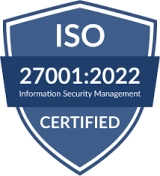Share on:
Are you a business owner seeking knowledge on how to manage your business finance? This post has been crafted with you in mind.
Finance and business can not be separated, the extent to which you understand how to manage your business finances will determine the growth your business experiences.
Business owners are constantly faced with this question of how to manage their business finances. In order to answer this question, I will be sharing seven effective ways.
1. Budget with Precision
One of the fundamental ways of managing business finances is creating a comprehensive budget. This financial roadmap should outline your projected income and expenses. By analyzing your budget regularly, you can identify areas where you might be overspending and make necessary adjustments. It's like keeping your financial compass pointed in the right direction.
However, some businesses face the challenge of following through with their budget. A good way to achieve this is using software that allows you to view your budget in real time. This way you are alerted by your records when you are over shooting your budget.
Tyms is one of such software.
2. Track Every Penny
Keeping a watchful eye on your finances is non-negotiable. From petty cash to substantial investments, every financial move should be recorded. Implementing a robust tracking system, such as an accounting software, enables you to monitor inflows and outflows accurately. This method ensures transparency, accountability, and a firm grip on your financial pulse.
In business, every penny counts and should be accounted for. This will leave no room for fraud.
Tracking every penny ensures that you have opened all the books that your business requires to stay accountable.
To ease your work, using a software that allows room for automation, helps you not to leave any stone unturned.
3. Manage Cash Flow Wisely
Smooth cash flow is the lifeblood of any business, regardless of its size. Finding ways to optimize your cash flow is one of the most effective ways of managing business finance. Negotiate favorable terms with suppliers, incentivize early payments from customers, and be cautious with extending credit. These steps can significantly impact your business's financial stability.
Manage cash flow ensures you don't run out of running costs. And eliminates the need for incurring unnecessary debts.
4. Embrace Frugality
Being frugal in business is another key way of managing your finances. This speaks to spending only when it is necessary and on what is needed. This will help you avoid incurring unnecessary costs for your business.
Seek cost-effective alternatives without compromising on quality. Negotiate with vendors for bulk discounts, explore shared resources, and keep a watchful eye on unnecessary expenses. Being frugal doesn't mean cutting corners; it means making wise choices.
5. Digitize Account and Finance Management
In today's digital age, leveraging technology can be a game-changer. Utilize accounting software, payment gateways, and online banking to streamline financial processes. Automation not only saves time but also minimizes human error, contributing to better financial management.
Embracing today's technology can make managing your business stuff way easier. You know how there's an app for everything? Well, that goes for organizing your documents, contracts, and everything else too. Instead of drowning in piles of paper, you can keep things digital and tidy. When it comes to money stuff, like keeping track of where your cash is going, there are softwares that can handle all that.
By jumping on this tech train, you'll get things done faster and have all your important information right there when you need it.
6. Maintain a Distinction Between Your Business and Personal Finances
To ensure clarity in record-keeping and avoid confusion, it's crucial to separate your small business finances from your personal finances. This can be achieved by maintaining distinct bank accounts for your business transactions. By doing so, you'll have a clear overview of the available funds for your business endeavors.
Avoid using personal credit cards or bank accounts to cover business-related expenses. Refrain from transferring money from your business account to your personal one as well. Instead, establish dedicated accounts, such as a business savings account for setting funds aside and a business checking account for receiving payments.
Keeping your personal and business finances separate provides enhanced financial security. This separation shields your personal assets from potential business challenges and prevents your personal finances from being compromised by business-related difficulties.
7. Keep An Eye On Your Books
Keeping an eye on your books helps you to know where your business is. This will provide you with the required knowledge to drive the business in the right direction. Don't leave anything to assumption. Using an accounting software makes it easier to have the knowledge of where your books are at a glance.
Conclusion
Each of these steps shared is necessary for managing your business finances. Whatever stage your business is, don't compromise on any of the tips.
Remember money is the lifeblood of every business. There is no business without finances.


Chineye Ochem
3 mins read


Tyms
2 mins read



